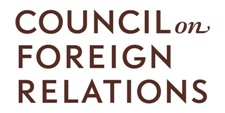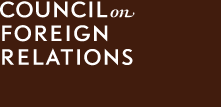 Navigation
Navigation
home > by publication type > books > Ruling But Not Governing

 Email
Email
Book
-
Book

Related Materials
- Cheering an Islamist victory
By Steven A. Cook, Senior Fellow for Middle Eastern Studies
Op-Ed
July 26, 2007
- Cook: Turkish Elections Positive for Democracy, Relations with U.S.
Interview
July 23, 2007
- Cook: Border Crisis between Turkey, Iraq Worsens U.S.-Turkey Ties
Interview
July 16, 2007
- Steven Cook: Ruling But Not Governing
Podcast
May 18, 2007
- The EU, Erdogan and Turkey's generals
By Steven A. Cook, Senior Fellow for Middle Eastern Studies
Op-Ed
April 23, 2007
See Also
Ruling But Not Governing
The Military and Political Development in Egypt, Algeria, and Turkey
A CFR Book. Johns Hopkins University PressAuthor: Steven A. Cook, Senior Fellow for Middle Eastern Studies
May 2007
208 pages
ISBN 978-0-8018-8590-7 (cloth), 978-0-8018-8591-4 (pa)
$55.00
$24.95 (paper)
Overview
Ruling But Not Governing highlights the critical role that the military plays in the stability of the Egyptian, Algerian, and, until recently, Turkish political systems. This in-depth study demonstrates that while the soldiers and materiel of Middle Eastern militaries form the obvious outer perimeter of regime protection, it is actually the less apparent, multilayered institutional legacies of military domination that play the decisive role in regime maintenance. Steven A. Cook uncovers the complex and nuanced character of the military’s interest in maintaining a facade of democracy. He explores how an authoritarian elite hijack seemingly democratic practices such as elections, multiparty politics, and a relatively freer press as part of a strategy to ensure the durability of authoritarian systems. Using Turkey’s recent reforms as a point of departure, the study also explores ways external political actors can improve the likelihood of political change in Egypt and Algeria. Ruling But Not Governing provides valuable insight into the political dynamics that perpetuate authoritarian regimes and offers novel ways to promote democratic change.
“One of the best books of its kind that I have read in years. It is not simply about militaries, it is about how informal politics itself limits the boundaries of formal democratic institutions. Cook's command of the relevant languages and his capacity to summarize three critical Middle East cases in clear and engaging language makes this a compelling and indeed indispensable piece of work.”
—Daniel Brumberg, Georgetown University, coeditor of Islam and Democracy in the Middle EastSteven A. Cook is the Douglas Dillon fellow at the Council on Foreign Relations. He is an expert on Arab and Turkish politics as well as U.S.-Middle East policy. Prior to joining the Council, Dr. Cook was a research fellow at the Brookings Institution (2001–2002) and a Soref research fellow at the Washington Institute for Near East Policy (1995–96). He has published widely in a variety of foreign policy journals, opinion magazines, and newspapers including Foreign Affairs, Foreign Policy, Journal of Democracy, the Weekly Standard, The New Republic Online, the New York Times, the Washington Post, the Financial Times, and the International Herald Tribune. Dr. Cook is also a frequent commentator on radio and television. Dr. Cook holds a BA in international studies from Vassar College, an MA in international relations from the Johns Hopkins School of Advanced International Studies, and both an MA and PhD in political science from the University of Pennsylvania. He speaks Arabic and Turkish and reads French.
- Cheering an Islamist victory
-
New CFR Books

In War of Necessity, War of Choice, Richard N. Haass contrasts the decisions that shaped the conduct of two wars between the United States and Iraq involving the two presidents Bush and Saddam Hussein, and offers an authoritative, personal account of how U.S. foreign policy is made, what it should seek, and how it should be pursued.

In Money, Markets, and Sovereignty, the authors present a fascinating intellectual history of monetary nationalism from the ancient world to the present and explore why, in its modern incarnation, it represents the single greatest threat to globalization.

In Power Rules, inspired by Machiavelli’s classic The Prince, Leslie H. Gelb offers illuminating guidelines on how American power actually works and should be wielded in today’s tumultuous world.
Complete list of CFR Books.
New Book from CFR and the Saban Center at Brookings
Proposes Middle East Strategy for the Obama Administration
 In Restoring the Balance: A Middle East Strategy for the Next President, experts from the Council on Foreign Relations and the Saban Center at the Brookings Institution propose a new, nonpartisan Middle East strategy drawing on the lessons of past failures to address both the short-term and long-term challenges to U.S. interests.
In Restoring the Balance: A Middle East Strategy for the Next President, experts from the Council on Foreign Relations and the Saban Center at the Brookings Institution propose a new, nonpartisan Middle East strategy drawing on the lessons of past failures to address both the short-term and long-term challenges to U.S. interests.
New CGS Council Special Reports
Focus on the Financial Fallout
Lessons of the Financial Crisis
 In this report, Benn Steil shows that the financial crisis is the inevitable bust of a classic credit boom, and explains how monetary, taxation, and home ownership promotion policy combined with other feaures of the financial system to fuel an unsustainable buildup in debt. He recommends significant reforms to reverse the debt financing bias and make the system more resilient to falls in asset prices.
In this report, Benn Steil shows that the financial crisis is the inevitable bust of a classic credit boom, and explains how monetary, taxation, and home ownership promotion policy combined with other feaures of the financial system to fuel an unsustainable buildup in debt. He recommends significant reforms to reverse the debt financing bias and make the system more resilient to falls in asset prices.Global Imbalances and the Financial Crisis
 In order for policymakers to tackle today’s global economic crisis, this report argues, they must go beyond bailouts and stimulus packages and focus on one of the crisis's root causes: imbalances between savings and investment in major countries.
In order for policymakers to tackle today’s global economic crisis, this report argues, they must go beyond bailouts and stimulus packages and focus on one of the crisis's root causes: imbalances between savings and investment in major countries.
Complete list of Council Special Reports.
New Independent Task Force Reports
Confronting Climate Change
 This report argues that the United States must lead with domestic action on climate change and proposes a U.S. negotiating strategy for a global UN climate agreement that includes commitments from all major economies, while also promoting a less formal Partnership for Climate Cooperation that would focus the world's largest emitters on implementing aggressive emissions reductions.
This report argues that the United States must lead with domestic action on climate change and proposes a U.S. negotiating strategy for a global UN climate agreement that includes commitments from all major economies, while also promoting a less formal Partnership for Climate Cooperation that would focus the world's largest emitters on implementing aggressive emissions reductions.U.S.-Latin America Relations: A New Direction for a New Reality
 This Task Force report examines changes in Latin America and in U.S. influence there, while taking account of the region's enduring importance to the United States. The Task Force offers an agenda for U.S. policy toward Latin America and identifies four critical areas that should provide the basis of a new U.S. approach.
This Task Force report examines changes in Latin America and in U.S. influence there, while taking account of the region's enduring importance to the United States. The Task Force offers an agenda for U.S. policy toward Latin America and identifies four critical areas that should provide the basis of a new U.S. approach.About Independent Task Forces at CFR.
Foreign Affairs at NASDAQ
Gideon Rose, managing editor of Foreign Affairs, presides over the NASDAQ Stock Market Opening Bell to celebrate the launch of ForeignAffairs.com.
Subscribe Now and Save 47%!
Publications Information
To order Task Force reports, Council Special Reports, and Critical Policy Choices, please call, fax, or order online from our distributor, the Brookings Institution Press: phone +1.800.537.5487, fax +1.410.516.6998.
For information on other reports that are not for sale, or for general publications information, please call +1.212.434.9516 or email publications@cfr.org.
Permissions Requests
To request permission to reuse CFR materials, please email publications@cfr.org or fax +1.212.434.9859.
Please include the complete information of the requested work—author, title, sections/pages to be copied or reprinted, and number of copies to be made—along with a brief description of where and how you would like to reuse the work.
You may also request permission for CFR material through Copyright Clearance Center. For more information, please click on the link below.



